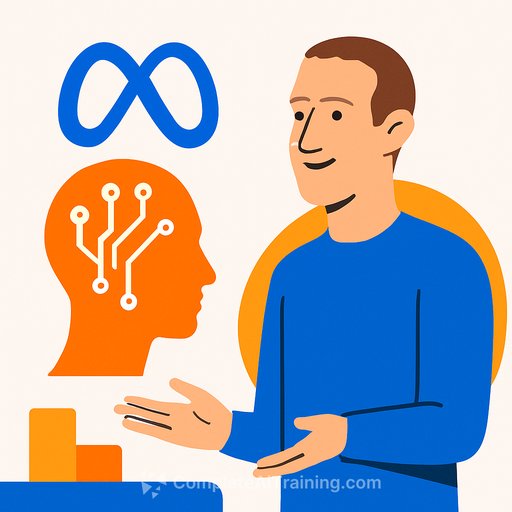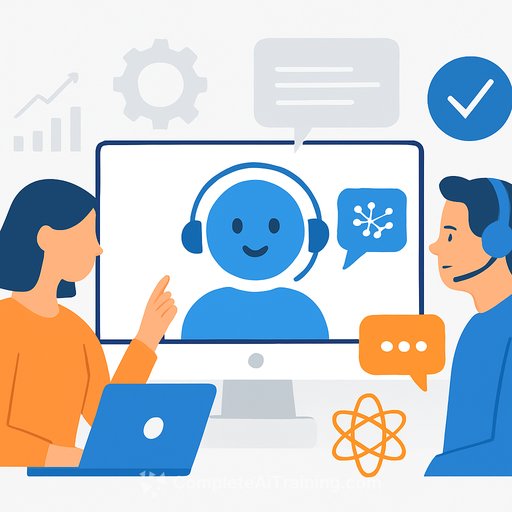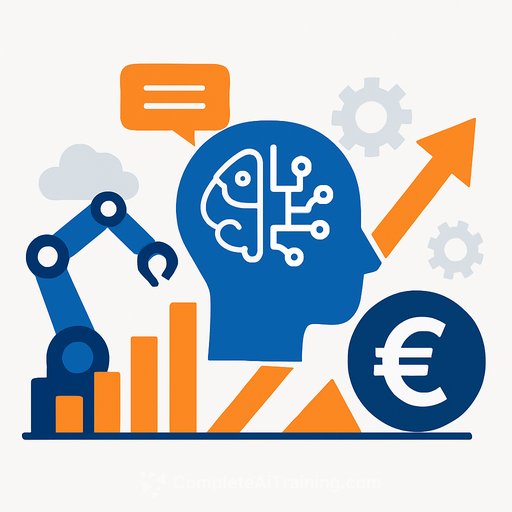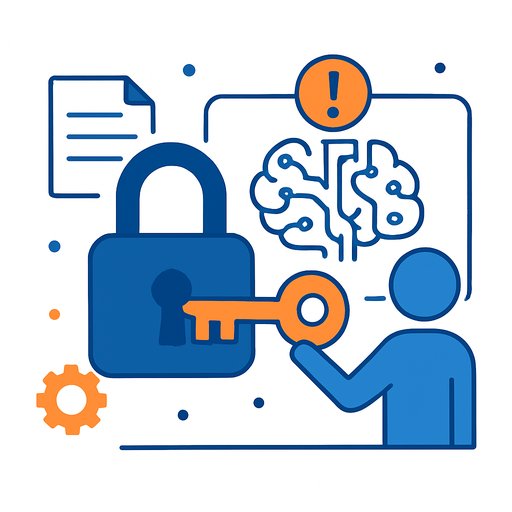Meta's push for super AI: what it means for engineers
Reports indicate that Meta CEO Mark Zuckerberg is recruiting outside experts to accelerate work on general and "super" AI. Over the past month he has hosted small dinners with AI researchers, infrastructure engineers, and founders to invite them to join Meta's AI effort.
Meta's stated aim is AGI-systems that think more like humans and assist across tasks-and an eventual "super AI" that could exceed human cognitive range. Facing criticism after Llama 4 underperformed expectations and a delay to a large-parameter project code-named "Behemoth," Zuckerberg is now personally directing hiring to reset momentum.
What's happening
- Target roles: top-tier AI scientists, distributed systems and infrastructure engineers, and entrepreneurs with applied AI track records.
- Outreach includes private dinners and direct offers to candidates from companies such as Google and OpenAI.
- Reported compensation ranges from seven to nine figures for select experts.
- Zuckerberg reportedly invited Scale AI founder Alexandr Wang to join the effort, alongside Meta's reported multi-billion investment in Scale AI's data and infrastructure services.
- Recent model results (Llama 4) fell short of expectations, and the high-parameter "Behemoth" model timeline was pushed back.
Why this matters for your roadmap
This signals where large platforms will spend the next cycles: data quality, training throughput, and reliable deployment at massive scale. If you build or integrate AI, expect stronger benchmarks, tighter eval loops, and higher bars for inference efficiency and safety.
- Training infrastructure: cluster scheduling, partitioning, memory/IO, interconnects, and energy-aware jobs.
- Model architecture: mixture-of-experts, long-context transformers, retrieval-augmented pipelines, and efficient fine-tuning.
- Data operations: scalable curation, red-teaming, deduplication, and labeling economics.
- Inference: quantization, caching, speculative decoding, GPU/CPU offload, and low-latency serving.
- Trust and safety: policy tooling, evaluation suites, and incident response for model behavior.
Skills Meta is likely optimizing for
- GPU systems: Kubernetes/Slurm on multi-node clusters, NVLink/InfiniBand topologies, and scheduling at tens of thousands of GPUs.
- Compiler/Kernel work: CUDA, Triton, custom attention kernels, graph-level optimization, and memory planning.
- Parallelism: tensor/pipeline/expert routing, FSDP, ZeRO-style sharding, and checkpointing strategies.
- Data engineering: petabyte-scale pipelines, synthetic data generation, privacy-preserving workflows, and comprehensive eval harnesses.
- Reliability: canary deployments, deterministic training, reproducibility, and cost controls.
AI-enhanced supply chain management systems
Large-scale AI programs depend on tight supply chains for GPUs, networking gear, and curated data. Expect increased use of AI to forecast hardware availability, optimize allocation, and reduce bottlenecks across procurement and deployment.
Practical next steps
- Audit your stack for the slowest link: data throughput, training stability, or inference cost. Fix one bottleneck per quarter.
- Stand up a small MoE or long-context prototype and benchmark against clear task suites before scaling.
- Invest in evaluation: automated red-teaming, regression tests, and business KPIs that models must hit before promotion.
- Upskill your team with focused programs aligned to large-platform practices. See AI courses by leading companies at Complete AI Training.
Further reading
- Meta's AI research and platform updates: ai.meta.com
- Background on AGI concepts: Artificial general intelligence
Your membership also unlocks:






